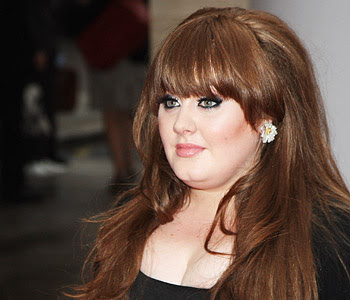Since I’m in desperate need of a holiday, I figure that I can at least live vicariously through the exploits of a bunch of teenagers caning it in Zante. Problem is, I’ve already endured The Inbetweeners Movie, so I’m not sure that I need another hour of gormless adolescents vomiting into a goldfish bowl full of Blue Curacao and WKD.
Picking up voice-over duty is Russell Tovey, who warns us that “Everyone’s up for it, and anything goes. Cheap booze, dirty dancing and that all important independence.” No mention of who’s paying for these holidays, but I think with shows like this, it’s best not to quibble the details. If you’ve never seen Sun, Sex and Suspicious Parents, I’m fiercely jealous of you. But let me outline the concept for you – two gobby teens hit the Club 18-30 for a week, unaware that their parents are just yards away, participating in some of the least convincing undercover surveillance you’ve ever seen.
If I really wanted to capture the tone and feel of the show, I’d cut and paste the previous sentence three times, since that’s exactly what the voice-over does. By the time Russell has scored his scene-setting hat trick, I’m wondering whether this is going to get really hard to follow. Like Tinker Tailor Soldier Spy, but with more tramp stamps.
Not to worry, here come the spoilt teenagers to take our mind off all that repetition. Alex is from Newcastle, and is presumably modeling herself after Cheryl Cole, even if the effect is a little more Cher Lloyd. She has issues with her stepdad, because he perpetuates the myth that mums are allowed to have a life too. She’s going away with her best mates, including a hair-dresser who tells her to “Get on it like a car bonnet.” I’m not sure what that means, but I hope it’s been Supraguarded to protect from scuffing.
Sophie is 18 and rebelling against her strict Christian upbringing. To be fair, the parents don’t seem overly oppressive – Dad just sits in the conservatory leafing through Corinthians. Relishing every opportunity to shock, Sophie promises us lots of girlie snogging. Because nothing’s hotter than seeing a pair of overweight girls going at it like two dogs fighting over a Greggs Steak Bake.
By the time our excitable teens arrive in Zante, they’re enthusing about the most mundane details: “We’ve got a balcony. Yay!” “Oh my God, feel how actually hot it is.” Minutes later and Sophie hits the hotel pool, to check out the cock sizes of the Italian guests. Meanwhile, the parents meet up and express their concern about what they’re going to find out. Someone didn’t read the release forms before agreeing to come on this show. Sophie’s mum is especially worried that her daughter will get drunk and make a fool of herself. I’d suggest that her straining bikini took care of that.
We regroup with our teenage test subjects in a noisy bar, nestled between McDonalds and KFC. Alex is shaking a cocktail in a waiter’s pants and fighting with her friends. Sophie is spread out on the pavement, entwined with two other equally fulsome girls. They look like the Human Centipede, but made out of tripe.
As her best friend storms off in a huff, Mini-Cheryl is left in a bad mood. So we should be thankful that these aren’t the sort of bars that employ toilet attendants, otherwise it’d just get nasty. She cries that her friends are the only people who never judge her. But if being judged is her biggest fear, appearing on this show might not have been the smartest move.
The following day, Sophie sets out to organise watersports for her and her friends. I’d have thought a couple of plastic sheets and a bath-towel should cover it, but she’s thinking of a high-speed inflatable raft. Her parents are wearing cheap wigs and crouching behind a beach bar, watching her hijinks through opera glasses. Covert operations 101. Listening in on their conversations, Sophie’s dad speculates that “I don’t think Christianity is at the forefront of Sophie’s mind at the moment.” Which isn’t strictly true, because she’s looking at a bottle of water and wishing she could turn it into Mad Dog.
Elsewhere on the island, Alex and her friends wander off to buy “Vodka, and something to mix with vodka,” so her mum and stepdad sneak into her room for a look around. Our attention is drawn to a gruesome clump of purple hair on a pillow. They look disgusted, but to be honest, it could just be one of the wigs Sophie’s parents wore on the beach.
Later on, Sophie and her breasts head for another nightclub, so mum and dad sneak in the back to join in. It soon becomes clear that mum is a frustrated party animal herself. They may be here because they’re worried about whether Sophie has the where-with-all to live independently, but I’m starting to think that Dad might soon be the one learning to cook single portions.
Finally, it’s time for the parents to reveal themselves, which is ironic since their daughters have been doing that all week. In fact, Sophie’s laid out on a bar playing a “risqué game” when her folks appear. Dad keeps saying “I can’t wait to see her face”, oblivious to the fact that it’s the other end that’ll greet him first. As for Alex, she’s not exactly pleased to see her mum and stepdad interrupt the first sun she’s had all week. Not to worry, as mum tells her “You’ve been great, we’ve really enjoyed watching you.” At least someone did.









